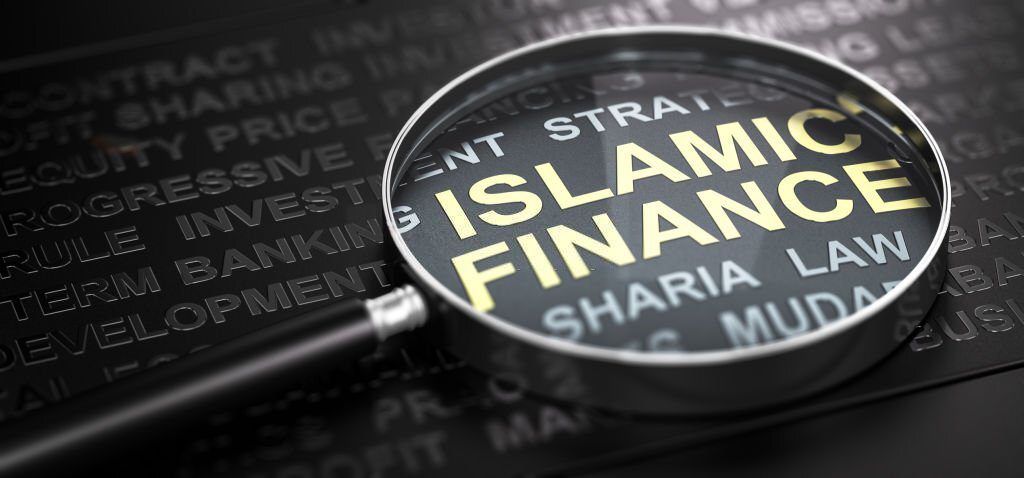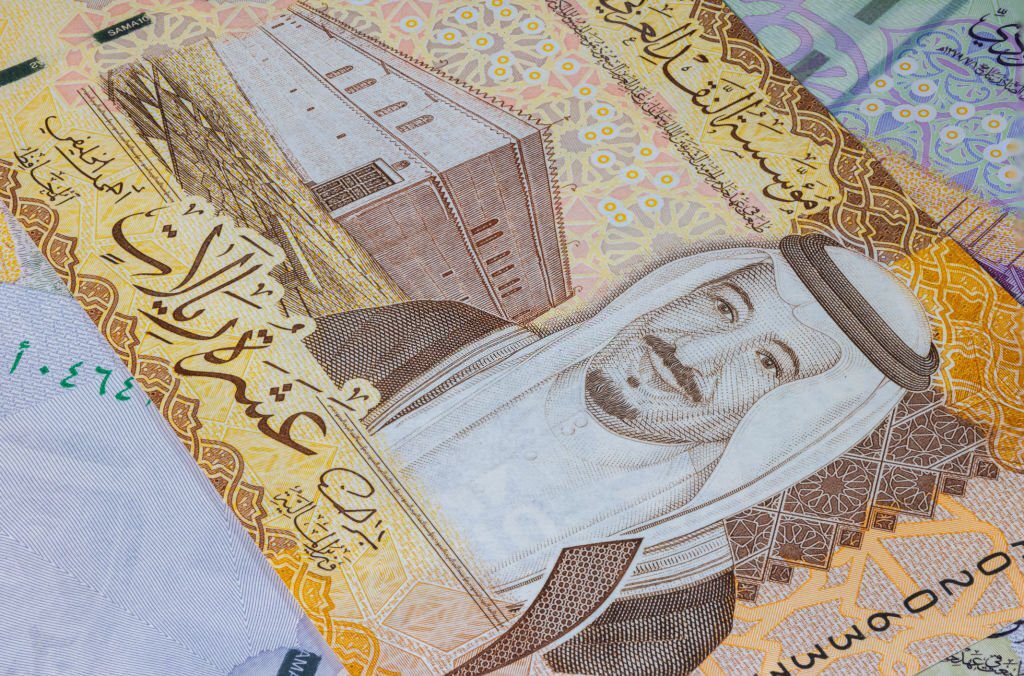In today’s globalized economy, forex trading has gained significant popularity as a means of financial investment. However, for individuals adhering to Islamic principles, the question arises: Is forex trading Halal or permissible according to Islamic teachings? Understanding the Islamic perspective on forex trading is essential for Muslims who wish to engage in this financial activity while remaining within the boundaries of their faith. This article aims to provide a comprehensive understanding of the Islamic perspective on forex trading, examining its permissibility and potential implications.
Overview of Islamic Finance

Islamic finance operates on the principles of Sharia, which governs economic and financial activities in accordance with Islamic law. The foundational principles of Islamic finance include the prohibition of Riba (interest) and the avoidance of Haram (forbidden) activities. Islamic finance places a strong emphasis on ethical and socially responsible investing, aligning financial activities with the broader values and principles of Islam.
Understanding Forex Trading
Forex trading, also known as foreign exchange trading or currency trading, involves the buying and selling of currencies in the global market. Traders aim to profit from fluctuations in exchange rates between different currency pairs. The forex market is highly liquid and operates 24 hours a day, allowing traders from around the world to participate.
Also Read: Forex Trading and Market Sentiment
Halal and Haram in Forex Trading

To answer the question “Is forex trading Halal (permissible) or Haram (prohibited)?” several factors need to be considered:
- Riba (interest) is strictly prohibited in Islamic finance. If you exchange currencies or borrow money that involves the payment or receipt of interest, it would be considered Haram.
- Gharar, which refers to uncertainty or speculation, needs to be minimized to maintain ethical trading practices.
- Gambling and games of chance are not permissible in Islamic finance.
Islamic scholars have expressed diverse opinions that surround the question, “Is forex trading halal or haram?“. Different perspectives and interpretations exist, resulting in varying rulings from scholars and different jurisdictions. Individuals must consult knowledgeable scholars and research the specific rulings applicable to their circumstances.
Islamic Forex Accounts

Islamic forex accounts have been developed to cater to the needs of Muslim traders who wish to engage in online forex trading while adhering to Islamic principles. These accounts are designed to be Sharia-compliant, ensuring they conform to Islamic finance principles. Islamic forex accounts may have specific features, such as removing overnight interest payments (swap fees) or introducing profit-sharing mechanisms to align with Islamic guidelines.
When considering Muslim forex accounts, verifying the compliance of forex brokers and forex trading platforms is essential. Traders should conduct thorough research to ensure that the Islamic forex accounts they choose truly adhere to Islamic principles and are certified by reputable Islamic financial institutions.
Controversial Aspects of Forex Trading

Forex trading, like any financial activity, has certain aspects that can be considered controversial from an Islamic perspective. These concerns primarily revolve around the presence of interest (Riba), excessive risk-taking, speculation (Gharar), and ethical considerations related to market manipulation. Understanding these controversial aspects is crucial for individuals seeking to align their forex trading practices with Islamic principles.
Overnight Swaps and Rollover Fees
When positions are held open overnight in forex trading, overnight swaps and rollover costs are assessed. These charges are frequently connected to the differences in interest rates between the currencies being traded. Such allegations provide a challenge from an Islamic standpoint since they entail the Riba (element of interest). As it involves the unlawful amassing of wealth through the charge or payment of interest, Riba is categorically forbidden in Islamic banking.
Islamic currency accounts have been created to allay this worry. These accounts run according to Sharia law without charging or paying interest. These accounts use different methods, such as profit-sharing arrangements or commission-based structures, to handle overnight positions instead of interest-based swaps.
Excessive Risk-Taking and Speculation
Islamic finance promotes avoiding unnecessary risk-taking and uncertainty (Gharar). By its very nature, forex trading entails some risk and speculation. Excessive risk-taking or speculative trading is in opposition to the Islamic financial tenet of limiting Gharar.
People should approach forex trading with caution and balance to allay this worry. This entails putting risk management techniques into practice, such as placing stop-loss orders, diversifying your investments, and abstaining from using too much leverage. Individuals can reduce the possible negative effects of excessive risk-taking and speculation by using caution and sticking to ethical trade standards.
Ethical Concerns and Market Manipulation
In Islamic finance, ethical issues take center stage. Like any other financial market, the forex market is open to unethical activities like insider forex trading, market manipulation, and other actions that have a negative impact on society. These behaviors go against the values of transparency, fairness, and justice that are the foundation of Islamic banking.
Traders who follow Islamic teachings ought to carry out their business in a morally and socially responsible way. This entails abstaining from any actions that take advantage of or manipulate the market in order to benefit oneself at the expense of others. Maintaining moral standards guarantees that forex trading stays in line with the more general objectives of Islamic finance, which aim to advance economic justice and social welfare.
It is essential for anyone who trades currencies to be aware of these contentious issues and make an effort to match their methods with Islamic teachings. People who want to behave themselves ethically and in accordance with their religious beliefs might navigate the forex market by attempting to minimize interest-based fees, limiting excessive risk-taking, and upholding ethical conduct. Additionally, individuals should stay up to date on ongoing discussions and debates in the area of Islamic finance to make sure their forex trading methods are consistent with the most recent scholarly viewpoints and recommendations.
Mitigating Haram Aspects of Forex Trading
A number of actions can be taken to lessen forex trading’s Haram components and bring it into compliance with Islamic law. One of the most important first steps is to use Sharia-compliant Islamic currency accounts. These accounts offer methods that follow Islamic banking principles and eliminate or adjust interest-related costs. To ensure the adherence of an Islamic forex account to Islamic teachings, it is also crucial to seek advice from experienced scholars who focus on Islamic forex trading.
Additionally, rather than participating in excessive speculation, which may increase risk and uncertainty, traders might concentrate on long-term investments. It is essential to emphasize education and FX market awareness to make well-informed decisions that align with Islamic beliefs.
Alternatives to Forex Trading

Alternative investment possibilities are available in the field of Islamic finance for people who are wary of participating in forex trading because it might conflict with Islamic principles:
Real Estate Investment
In Islamic finance, real estate has traditionally been regarded as a good investment choice. As long as the transactions are devoid of Riba and other prohibited aspects, investing in assets, such as residential or commercial real estate, can produce reliable profits and be in accordance with Islamic teachings.
Islamic Mutual Funds and Exchange-Traded Funds (ETFs)
Islamic mutual funds and exchange-traded funds (ETFs) have become well-liked investment options that follow Sharia law. These investment vehicles combine the funds of numerous individuals and make investments in a portfolio of Islamic-compliant assets. These funds frequently concentrate on industries like Islamic finance, halal food, and ethical businesses.
Commodities Trading
Within the confines of Islamic banking, commodities like gold, silver, and agricultural products present investment options. Commodity trading can offer an investment that is both tangible and asset-backed, reducing risk and conflicts with Islamic tenets.
When exploring alternative investing possibilities, it is crucial to undertake extensive research and seek guidance from knowledgeable experts and academics who specialize in Islamic finance.
Conclusion

Muslims who want to participate in forex trading while upholding their religious convictions must first understand the Islamic viewpoint on the subject. Islamic texts do not specifically mention forex trading. However, scholars have disagreed on whether it is permissible. Riba, Gharar, and gambling aspects, among other factors, must be carefully considered.
Islamic forex accounts have been developed to address the concerns of Muslim traders and provide Sharia-compliant trading practices. However, overnight swaps, excessive risk-taking, and ethical issues continue to be contentious. People should do their study and pick a credible forex broker and platform that provides actual Islamic FX accounts.
People may take into account alternate investment possibilities within Islamic finance, such as real estate, Islamic mutual funds, ETFs, and commodities trading when FX trading makes it difficult to uphold Islamic norms.
In conclusion, individuals should undertake thorough research, seek guidance from knowledgeable scholars, and engage in continuous education to make informed decisions aligned with Islamic principles. Each person’s circumstances may vary, and it is vital to find a balance between financial aspirations and religious obligations while ensuring compliance with Islamic finance principles.
FAQs
Is forex trading Halal or Haram in Islam?
The permissibility of forex trading in Islam is a topic of debate among scholars. While some argue that it is permissible under certain conditions, others consider it to be strictly prohibited. The controversy stems from concerns related to interest (Riba), uncertainty (Gharar), and ethical considerations. It is advisable to consult with knowledgeable scholars and seek personalized guidance based on individual circumstances.
What is the ruling on overnight swaps and rollover fees in forex trading?
Overnight swaps and rollover fees, which involve the payment or receipt of interest, are problematic from an Islamic perspective. These charges contradict the prohibition of Riba in Islamic finance. To address this concern, individuals can opt for Islamic forex accounts, which operate without interest-based swaps and offer alternative mechanisms to accommodate overnight positions.
How can I minimize the Haram aspects of forex trading?
To minimize the Haram aspects of forex trading, individuals can:
- Opt for Islamic forex accounts that adhere to Sharia guidelines.
- Seek expert guidance from knowledgeable scholars who specialize in Islamic finance.
- Practice risk management by implementing strategies such as setting stop-loss orders and avoiding excessive leverage.
- Focus on long-term investments rather than engaging in excessive speculation.
- Emphasize education and understanding of the forex market to make informed decisions.
Are there alternative investment options that are Sharia-compliant?
Yes, there are alternative investment options available within Islamic finance. Some of these options include:
- Real estate investment: Investing in properties that comply with Sharia principles, such as avoiding interest-based financing.
- Islamic mutual funds and exchange-traded funds (ETFs): These funds adhere to Islamic investment guidelines, ensuring compliance with Sharia principles.
- Commodities trading: Trading in commodities such as gold, silver, or agricultural products that meet the criteria of Islamic finance.
It is advisable to research and consult with experts to identify investment options that align with Islamic principles.











